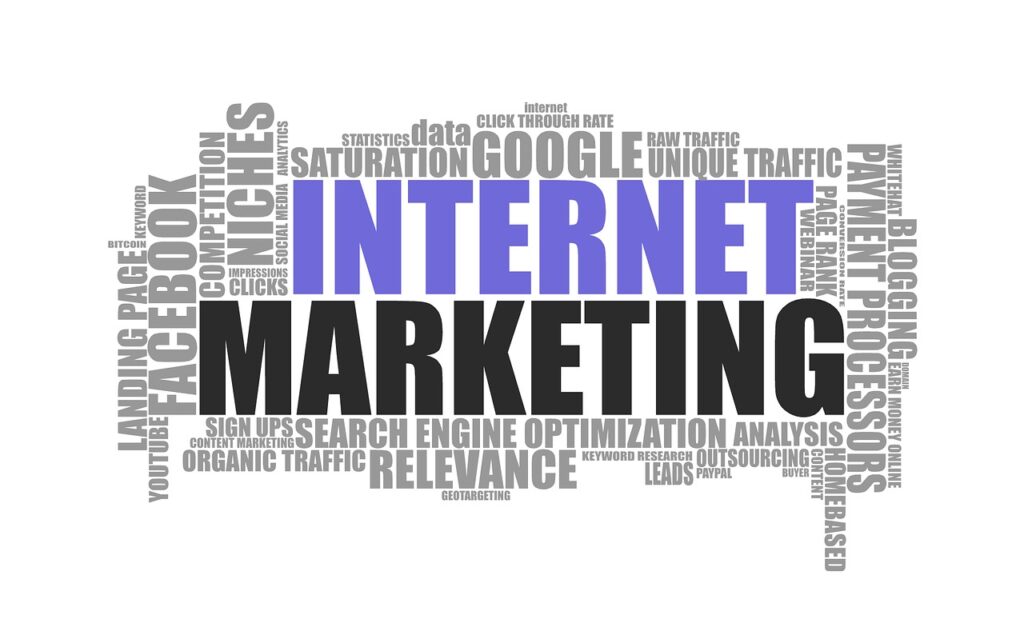Introduction
In the rapidly evolving landscape of the 21st century, digital marketing has emerged as a critical component for business success. As technology advances and consumer behaviors shift, businesses must adapt their marketing strategies to stay relevant and competitive. This blog will delve into the essentials of digital marketing, explore its various facets, and provide actionable insights for 2024.

What is Digital Marketing?
Digital marketing encompasses all marketing efforts that use an electronic device or the internet. Businesses leverage digital channels such as search engines, social media, email, and websites to connect with current and prospective customers. The primary goal is to promote products and services, increase brand awareness, and drive sales through digital platforms.
Key Components of Digital Marketing
1. Search Engine Optimization (SEO)
SEO involves optimizing your website to rank higher in search engine results pages (SERPs), thereby increasing organic traffic. Key aspects of SEO include:
- Keyword Research: Identifying relevant keywords that potential customers are searching for.
- On-Page SEO: Optimizing individual web pages with targeted keywords, meta descriptions, and high-quality content.
- Off-Page SEO: Building backlinks from reputable websites to improve domain authority.
- Technical SEO: Ensuring your website is mobile-friendly, fast-loading, and secure.
2. Content Marketing
Content marketing focuses on creating and distributing valuable, relevant, and consistent content to attract and retain a clearly defined audience. This can take the form of:
- Blog Posts: Providing informative and engaging articles to answer customer queries.
- Videos: Creating visual content to demonstrate products or explain concepts.
- Infographics: Using visual representations of information to simplify complex ideas.
- Ebooks and Whitepapers: Offering in-depth knowledge on specific topics to generate leads.
3. Social Media Marketing
Social media platforms like Facebook, Instagram, Twitter, LinkedIn, and TikTok are powerful tools for reaching and engaging with your audience. Key strategies include:
- Content Creation: Posting regular updates, images, and videos to keep followers engaged.
- Paid Advertising: Running targeted ads to reach a broader or more specific audience.
- Community Management: Responding to comments, messages, and reviews to build relationships.
4. Email Marketing
Email marketing remains a highly effective way to nurture leads and convert them into customers. Strategies include:
- Personalization: Tailoring emails to individual preferences and behaviors.
- Automation: Setting up automated email sequences for onboarding, cart abandonment, and re-engagement.
- Segmentation: Dividing your email list into segments based on demographics or behavior to send more relevant messages.
5. Pay-Per-Click (PPC) Advertising
PPC advertising involves paying a fee each time your ad is clicked. Platforms like Google Ads and Facebook Ads offer sophisticated targeting options to reach your ideal audience. Key components include:
- Keyword Targeting: Bidding on keywords that your target audience is searching for.
- Ad Copy: Crafting compelling ads that drive clicks and conversions.
- Landing Pages: Designing optimized landing pages that encourage visitors to take action.
6. Analytics and Data Analysis
Measuring the effectiveness of your digital marketing efforts is crucial for continuous improvement. Tools like Google Analytics, SEMrush, and HubSpot can help track key metrics such as:
- Traffic Sources: Understanding where your visitors are coming from.
- Conversion Rates: Measuring the percentage of visitors who take a desired action.
- Return on Investment (ROI): Calculating the financial return on your marketing investments.
Trends to Watch in 2024
As digital marketing continues to evolve, staying ahead of the trends is essential. Here are some key trends to watch in 2024:
1. Artificial Intelligence and Machine Learning
AI and machine learning are transforming digital marketing by enabling more personalized and efficient customer interactions. AI-powered chatbots, predictive analytics, and personalized content recommendations are becoming increasingly common.
2. Voice Search Optimization
With the rise of smart speakers and voice assistants, optimizing for voice search is crucial. This involves focusing on natural language queries and providing concise, accurate answers to common questions.
3. Video Marketing
Video continues to dominate online content consumption. Live streaming, short-form videos on platforms like TikTok and Instagram Reels, and interactive video content are key areas of focus.
4. Privacy and Data Security
With increasing concerns about data privacy, businesses must prioritize transparent data practices and comply with regulations such as GDPR and CCPA. Building trust with customers through secure data handling is essential.
5. Augmented Reality (AR) and Virtual Reality (VR)
AR and VR are creating immersive marketing experiences. From virtual try-ons to interactive 3D product demos, these technologies are enhancing customer engagement and driving sales.
Conclusion
Digital marketing is an ever-evolving field that requires continuous learning and adaptation. By understanding its core components, staying abreast of emerging trends, and leveraging data-driven strategies, businesses can effectively navigate the digital landscape and achieve their marketing goals in 2024. Embrace the power of digital marketing to connect with your audience, build your brand, and drive growth in the years to come.
4o
